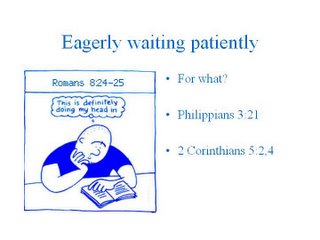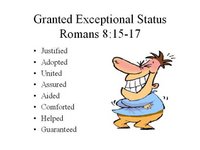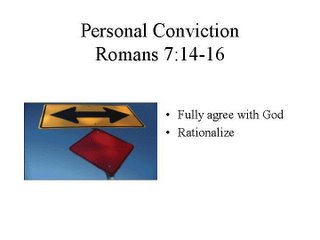 Why do we root for the underdog? The disadvantaged? The disfavored? The have-nots? This is especially true in the real-life movie Cinderella Man where Jim Braddock had to fight the powerful, champion boxer Max Baer. We sat in the theater with a lump in our throat pulling for Braddock. The same thing happened when we saw movies such as Rocky and Rudy. However, in Romans 9:1-5, we see just the opposite mind-set from Paul. He was deeply concerned about his fellow Jews who had every advantage. They were hardly “underdogs” when it came to opportunity with the Living God.
Why do we root for the underdog? The disadvantaged? The disfavored? The have-nots? This is especially true in the real-life movie Cinderella Man where Jim Braddock had to fight the powerful, champion boxer Max Baer. We sat in the theater with a lump in our throat pulling for Braddock. The same thing happened when we saw movies such as Rocky and Rudy. However, in Romans 9:1-5, we see just the opposite mind-set from Paul. He was deeply concerned about his fellow Jews who had every advantage. They were hardly “underdogs” when it came to opportunity with the Living God.  There is something about us as humans that want to see an underdog win and a favored one to lose. I’ve heard it explained that if an underdog wins, our hope that we can also win rises. But this doesn’t cover the complete spectrum because in other instances someone’s failure could also hurt us (i.e. we get more than we wished for). For example, out of anger or jealously, we might want to see “the boss” cut down a notch or two, but in the process the whole department gets laid off including us.
There is something about us as humans that want to see an underdog win and a favored one to lose. I’ve heard it explained that if an underdog wins, our hope that we can also win rises. But this doesn’t cover the complete spectrum because in other instances someone’s failure could also hurt us (i.e. we get more than we wished for). For example, out of anger or jealously, we might want to see “the boss” cut down a notch or two, but in the process the whole department gets laid off including us.I can’t completely explain our motivations, but is there any justification for a mind-set that wants to see one-person fail and another succeed? Truth is the advantaged are no different before God than the disadvantaged. Everyone needs mercy and grace. Right?

Do you know an advantaged person that’s an unbeliever? That person may be a topdog somewhere, but how does his daily need for God’s mercy, grace and patience compare to that of the rest of us? In a ways then, it is easier to pray for a disadvantaged underdog. Thank God for treating unbelievers fairly. Thank God for his mercy and grace. I’ll need it Sunday to make clear Step 2 of this week’s LifeWay lesson “Need for Mercy” based on Romans 9:1-29.

 Second, to further discuss member attitudes toward unbelievers, I’ll ask members to compare their mind-sets to those of the disciples. I’ll use the PPT slide that includes an animated
Second, to further discuss member attitudes toward unbelievers, I’ll ask members to compare their mind-sets to those of the disciples. I’ll use the PPT slide that includes an animated 








 The proprietor said, “I don’t think I can take this.” There is no mention of God in the article and when asked “If you could have any one thing you needed right now, what would it be?” He said, “A building.”
The proprietor said, “I don’t think I can take this.” There is no mention of God in the article and when asked “If you could have any one thing you needed right now, what would it be?” He said, “A building.”



 I’ll discuss our certain hope based on Romans 8:24-25 using the pictured PPT slide that uses a
I’ll discuss our certain hope based on Romans 8:24-25 using the pictured PPT slide that uses a modified
modified 


















